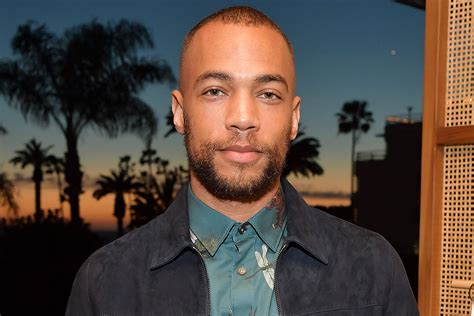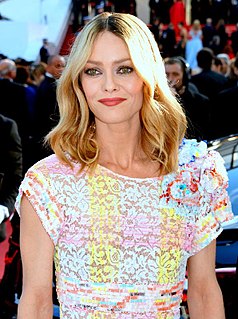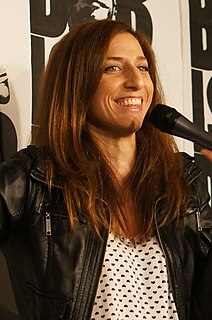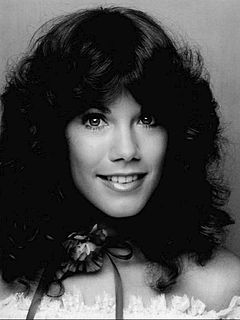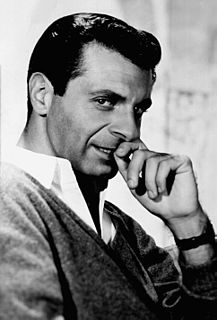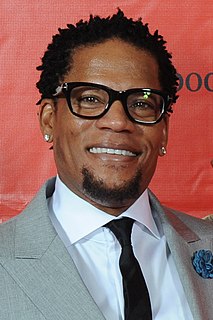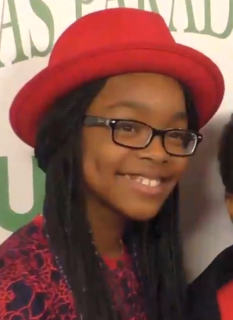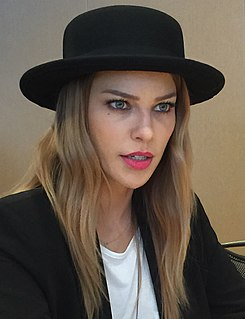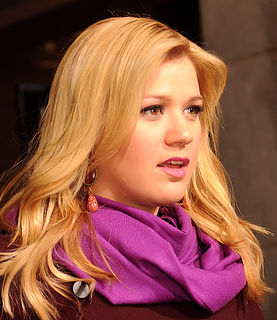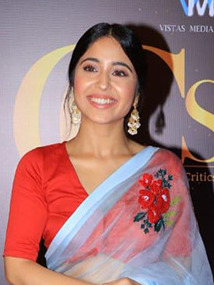A Quote by Rachel Weisz
Because I think in order to get famous you have to be known for something. Like 'You're the romantic comedy girl' or 'You're the Oscar-winning whatever girl.'
Related Quotes
In order for a person of color to get on a cover of a magazine, they have to do something prolific - winning an Oscar, being the first billionaire, you know, or whatever. I think it's becoming more natural that somebody can get on the cover of a magazine just because they're an amazing person. That's what it should be.
I love seeing the Oscar films and epic dramas. But I'd rather watch a romantic comedy than any other kind of movie. There's something about movies like these that make you feel so good and happy and that you want to live in that world -- to be that girl and be part of the fairy tale. I have always believed in fairy tales.
I do feel like guys feel pressure to be funny with me, which is kind of annoying. It's a turn-off if someone's trying hard to be funny because it feels like they're auditioning for a comedy job or something. It doesn't feel romantic to me. I get so much comedy from my life that, from a guy, I'm more looking for something sweet or romantic.
You are hearing this song, and you're 16, and it's a song about love, or a girl. And then maybe there's a girl at school that you like. So you're going to be thinking about that girl. That song is sort of about that girl. The songwriter doesn't know that girl, obviously. He wrote it for something else. But there's the specific meaning with the universal again.
I don't like ordinary girls. But a girl who would kill a guy to make him hers and then kiss his still-warm lips... a girl like Oscar Wilde's Salome They drive me crazy. Like Kiyohime turning into a snake to chase her man or the grocery girl Oshichi who set fire to a building just to see hers one more time. I want to be loved like that be obsessed over be hated.
In 'The Trip,' I play the character named Ananya Makhija, a Delhi girl who wants to get married. This is a different character from whatever I have portrayed onscreen so far - of a sweet, small-town girl. Most importantly, you will not find a trace of my character from 'Masaan.' So, I think this will change my image of a small-town girl.
There seems to be this tendency toward denigrating romantic comedies as of late because it becomes something sort of cheesy or whatever. Whereas this embraced what it was. As a fan of When Harry Met Sally or Annie Hall, as a demonstration of what romantic comedy could be and should be, I immediately phoned Nira back and said, "Yeah, I'd like to do this. It'll be fun."

